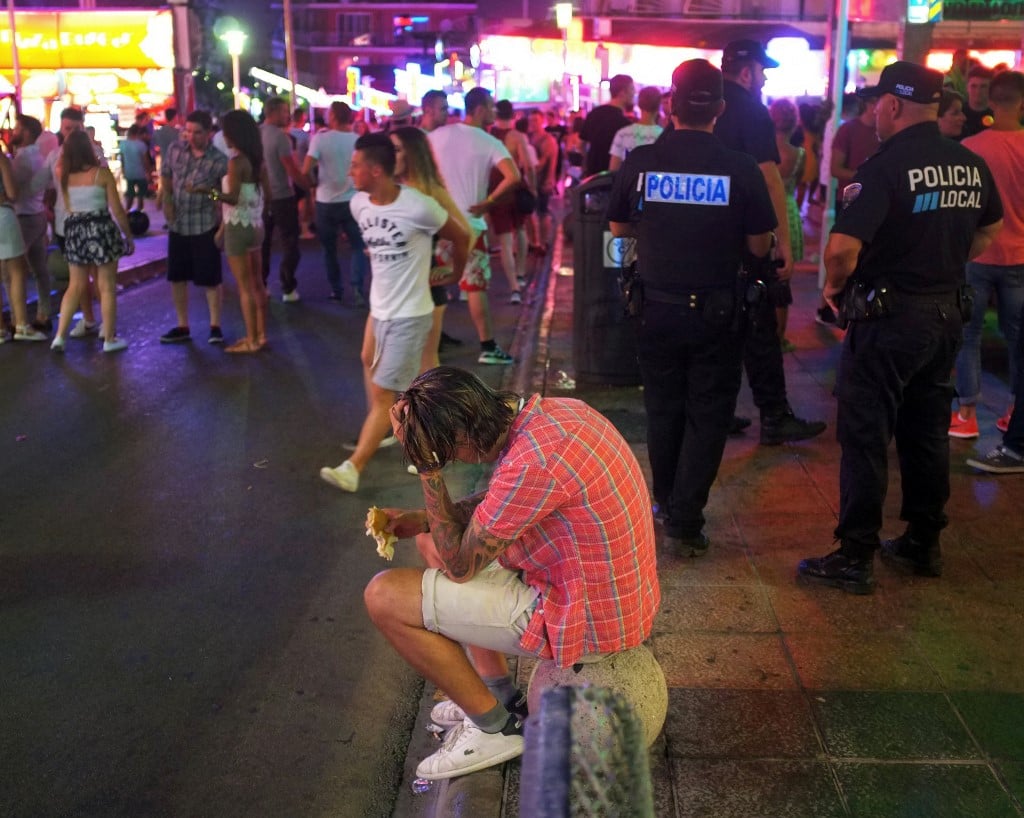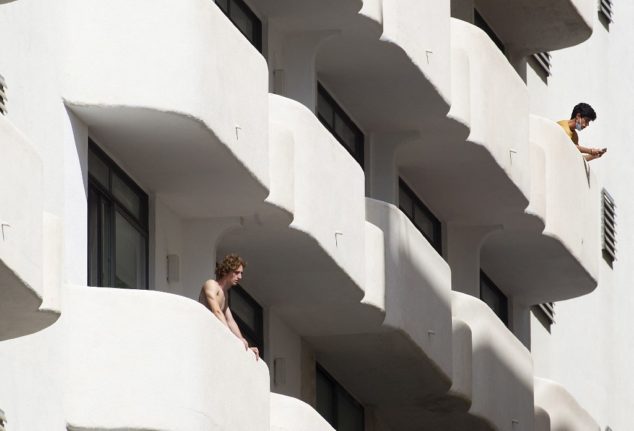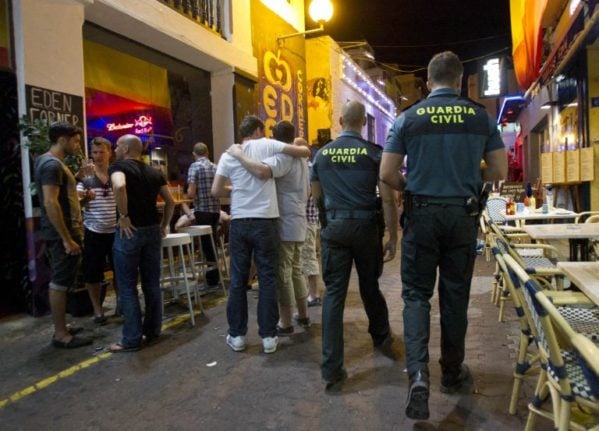If you ask a Spaniard what their stereotypes of British tourists are, they’ll likely say that they’re usually sunburnt, that they drink a lot and often engage in antisocial behaviour.
But another stereotype which has recently come to be associated with UK tourists is that of ‘balconing.’
This Spanglish word coined just over a decade ago refers to the tendency of young tourists on booze-fuelled holidays who jump or fall off balconies while on holiday in Spain.
Sadly, many holidaymakers have died this way, and many more have been left paralysed or with life-changing injuries over the years after suffering serious head and spinal injuries.
In early July 2023, two young Britons fell from balconies in Ibiza in the space of a few hours and one died from his injuries.
But this isn’t a new problem.
“We have this almost every week,” the President of Ibiza’s El Molí Neighbourhood Association Valeriano Campillo told the Spanish press.
“Those of us who are locals and have been here for many years are sorry but we have gotten used to it.
“This happens especially with English tourists,” he added, “because the people are very young, they come to have fun, and those who are responsible take care of themselves, and those who aren’t don’t take care of themselves.”
Recent research into balconing
This phenomenon doesn’t affect Britons alone, but young, drunk, male British tourists are the primary victims of ‘balconing’.
There’s also a geographical element too, with the majority of these accidents happening on Spain’s Balearic Islands, although other booze tourism spots such as Lloret de Mar and Salou have also been affected.
According to a study at the Son Espases Hospital in Palma de Mallorca, over 60 percent of balcony incidents involving British and Irish tourists occur in the Balearic Islands alone.
Going to destinations like Ibiza or Magaluf in Mallorca are rights of passage for many young Britons and Irish, and they certainly don’t arrive intending to try the local cuisine or culture.
The data from the Son Espases Hospital study also paints an interesting picture of the demographic profile of these balcony jumpers: 97.8 percent of the people who end up hospitalised after falling or jumping from a balcony are young men, with an average age of 24 years old.
Between 2011 and 2016, 46 balcony incidents were reported in the Balearics and only one involved a woman.
The study found that 61 percent of those who end up hospitalised were British. The average height of the fall was three stories.
Why does balconing happen?
Mallorca-based surgeon Juan José Segura Sampedro, who was recently awarded an honorary MBE by the British Crown for his research and work into reducing balcony deaths in Magaluf, has tried to get to the bottom of why balconing is mainly a British trend.
“We’ve got to fight what’s been established, their parents came here so there’s the legend of ‘Shagalluf’, the reality TV, it all sells them this story of juvenile immortality, that they have to have a week of debauchery like in the movie The Hangover, and this has very serious consequences,” Segura told Spanish daily El Mundo in 2018.

Drugs and alcohol have played a big role in almost all ‘balconing’ accidents; 95 percent of the incidents involved excess alcohol consumption, and 37 percent involved drugs.
“We’ve found that balconing patients, who have much more alcohol in their blood system, tend to have more head injuries,” Segura explained with regard to falls from buildings.
“Those who aren’t as inebriated will put their hands out, try to land on their feet as they fall into the void, which means they suffer more injuries to their extremities, but alcohol doesn’t give us time to react and our heads take the worst blow”.
Contrary to popular belief, 86 percent of balcony accidents are due to falls, as opposed to the craze of people jumping from them into a swimming pool.
“Many don’t remember anything, we notice mostly a feeling of disbelief, denial, guilt, shame, of not wanting to talk about it among the victims and their families,” Segura regrets.
“They had a life planned but now they can no longer move their legs, not because of a traffic accident but because of doing something stupid.
“Many of them are totally unable to hold a conversation ever again.”
Some psychologists believe group psychology and male bravado could be a factor in the balconing phenomenon.
Dr. Enrique García Huete, director at Quality Psychologists, has studied cases of balconing and believes that this sort of risky behaviour is mostly carried out by two types of people: leaders and followers.
Alcohol of course inhibits fear, as well as impairing functional skills like balance and depth perception, and many tourists after a heavy night of drinking do not foresee the consequences of their actions and decide, for different reasons, to jump from or try to climb across balconies.
“There are people who score high in psychopathy, who not only do not anticipate risk, punishment or pain, it also gives them adrenaline,” García Huete told online daily El Imparcial back in 2011.
Then there are the “dependent people who do feel afraid, but by demonstrating manhood in front of the group they imitate the behaviours of the leader,” the psychologist says.
This mixture of psychological profiles in a group, along with heavy drinking and carefree attitudes of holidaymakers, increases the likelihood that dangerous things like balconing will be discussed or attempted.
And why are young British and Irish holidaymakers more likely to engage in balconing than say Swedes or Germans?
“It’s something cultural,” Segura concludes.
“But I can only speculate about this, perhaps because of the pattern of alcohol consumption,” the surgeon added with regard to the fact that people from the UK and Ireland tend to drink a lot, and fast, what in Spain is called ‘el modelo anglosajón‘ (the anglosaxon model).
READ ALSO:



 Please whitelist us to continue reading.
Please whitelist us to continue reading.
Member comments